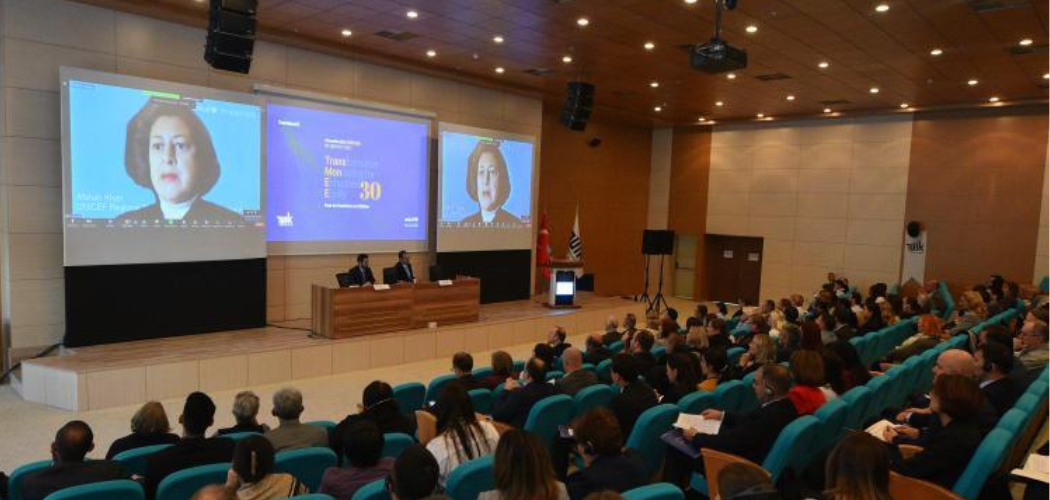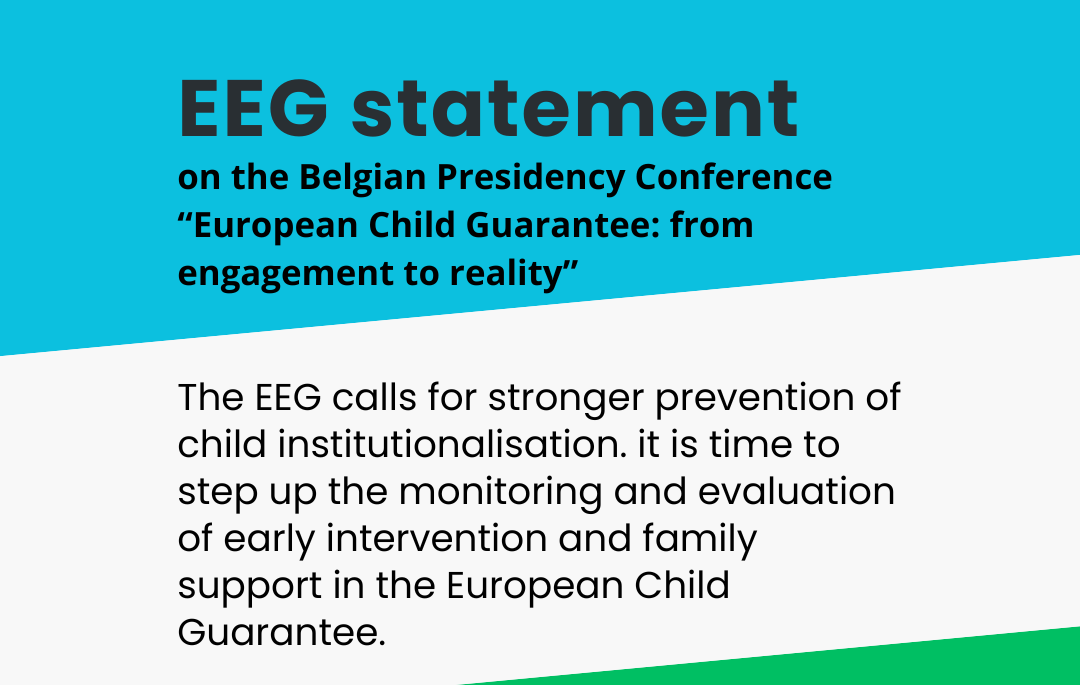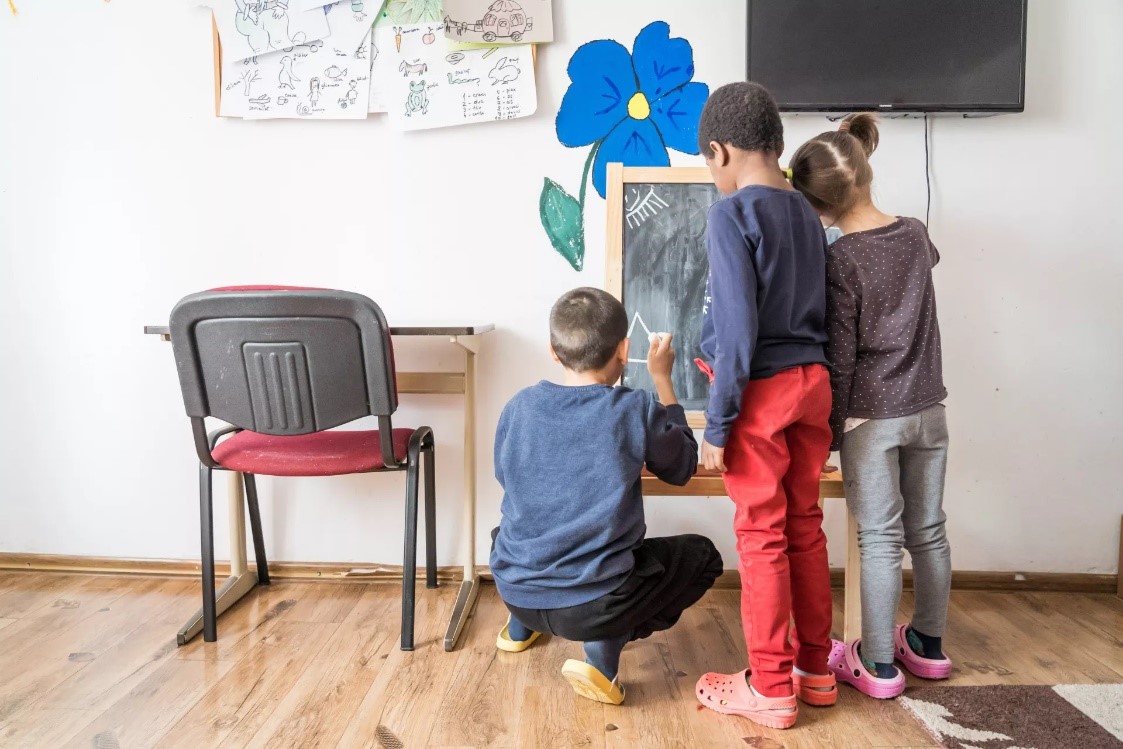Eurochild presents at Annual meeting of TransMonEE network
Eurochild member and former President Maria Herczog presents results from Eurochild and UNICEF’s DataCare project to inform international data strengthening efforts for child protection
Maria Herczog, President of the Family, Child, Youth Association in Hungary, and founding member and former President of Eurochild, and our Senior Researcher of the DataCare project, represented Eurochild at UNICEF ECARO’s recent 2022 TransMonEE Meeting: 30 years of monitoring child rights and inequities: Taking stock and moving towards comprehensive child rights monitoring. The meeting took place in Ankara, Türkiye, on 1-2 November 2022.
Eurochild was invited by our valued partners UNICEF ECARO to present the results from Eurochild and UNICEF’s DataCare study on data collection systems for children in alternative care across Europe.
What is TransMonEE and why is it important?
Transformative Monitoring for Enhanced Equity (TransMonEE) is a three-decade-old regional partnership initiative among the National Statistics Offices (NSOs). It aims to strengthen the coverage, quality, disaggregation, accessibility, and use of data on children, across a breadth of areas relevant to children’s rights and wellbeing. It is aligned with the UN Convention on the Rights of the Child and the 2030 Agenda for Sustainable Development.
The TransMonEE partnership seeks to enhance the generation, comparability, systematisation, and integration of statistics and indicators on childhood and adolescence in Europe and Central Asia, to improve the planning, implementation, and evaluation of policies and programmes for children and adolescents. Data on child protection, and children in alternative care, is an explicit focus of TransMonEE. This year’s meeting focused on three areas, which our DataCare project is directly informing:
- the recently adopted Guidance of the Conference of European Statisticians for improving statistics on children including children with disabilities, children in alternative care and statistics on violence against children;
- taking stock of the application of minimum child protection indicators in the region and explore good practices for the generation of statistics on children in alternative care;
- UNICEF ECARO’s proposed regional monitoring framework for child rights to capture data to monitor the realisation of child rights and challenges children face in today’s world. Read the draft framework.
How is Eurochild informing regional efforts to improve data monitoring of children in alternative care
The evidence Eurochild and UNICEF ECARO have gathered through our DataCare study is informing the revision of the TransMonEE database on child protection. Our recommended baseline indicators for children in different forms of alternative care: formal family-based care, formal foster care, residential care, have all been adopted.
Alongside them, new indicators to capture data on children with special needs in alternative care, young, young people aged 18-24 in care, and data on children entering and leaving alternative care, are also being incorporated, paving the way for a far clearer picture of the lived situation of children in alternative care across the region.
UNICEF ECARO’s new regional Child Rights Monitoring Framework encourages a holistic and coherent approach to monitoring child rights across the region. It seeks to align international data monitoring on children’s well-being, including indicators developed under initiatives including the SDGs, OECD child well-being, the EU Child Guarantee, EU SILC, DataCare and TransMonEE.
The conference also discussed missing and difficult to measure indicators, such as informal and formal kinship care, differentiations made between the different forms of residential care, re-admission and placement changes, number of young children under the age of 3 (read our First Years First Priority recommendations to learn more why this is crucial), and the subjective well-being of children in care among others. During the conference these issues were also discussed parallel to a number of methodology issues.
For further information
- Access all the presentations and learn more about the 30th annual TransMonEE Meeting.
- View Eurochild’s presentation of the DataCare project results and recommendations.
- Learn more about the work of the Family, Child, Youth Association.
- Contact Ciaran O’Donnell from the Eurochild Secretariat, to learn more about our work to inform data collection for children in alternative care.





